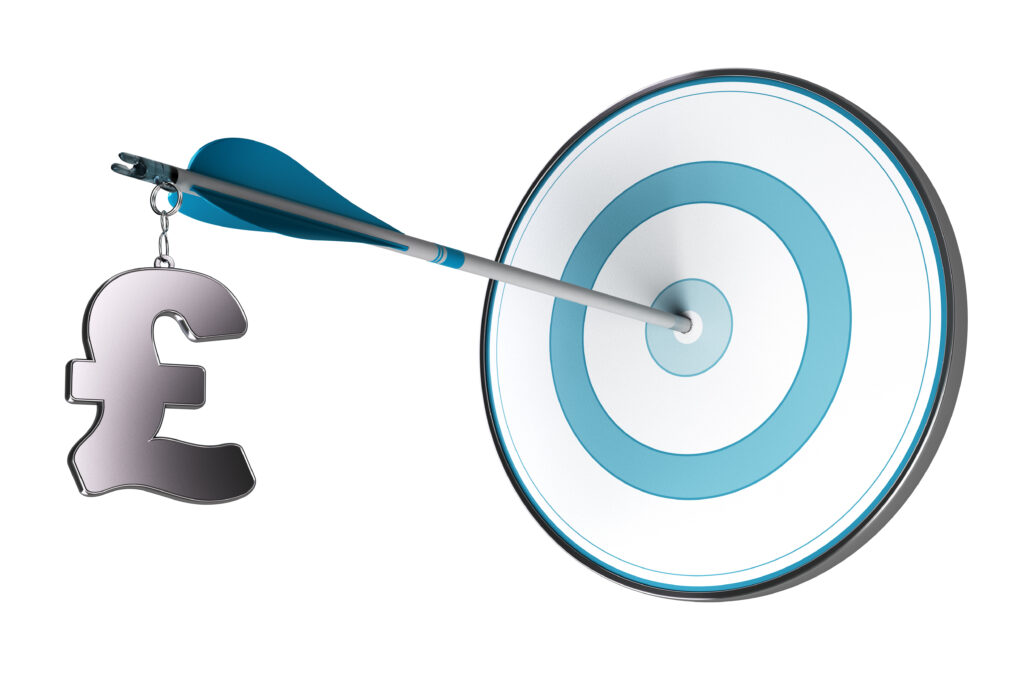Having money set aside for a rainy day is very appealing, but don’t confuse that with building and maintaining an emergency fund. A basic principle of good financial planning is to keep at least 3 to 6 months’ of expenditure aside for financial emergencies. Most people in the UK have not yet managed to save this amount, but if you do succeed, you need to avoid the temptation to spend it.
According to a report by comparison website finder.com, half of the UK population has £1000 or less in savings. They’d be unable to live off their savings for a month if their income stopped. In fact, almost a quarter have no savings at all.
One of the requirements to enjoy financial wellbeing is to have the ability to cope with financial shocks. This could include:
- Redundancy
- Illness and death
- Divorce and separation
- Unexpected events, like pandemics
- Boiler breakdowns and car repairs
- Stock market crashes
The practical benefits of having money set aside to cover unexpected events like this is clear. But the positive effect of building up savings doesn’t stop there. There can be huge emotional advantages in being prepared for the unexpected.
Studies have shown that a higher sense of wellbeing can be achieved by having money set aside than can be gained from receiving a pay rise. So if you don’t yet have 3 to 6 months’ worth of spending set aside in a savings account, what could you do? Here are 3 steps to get started.
1. Set a target for your emergency fund
First of all, work out something to aim for. Look back at your bank transactions for the last 2 or 3 months and find out how much you regularly spend on essentials.

Add up the monthly bills, food, rent or mortgage payments, standing orders and direct debits. This should confirm how much you would need to survive for a month, without incurring debt. You don’t need to include luxuries, such as holidays and eating out, but there’s no harm in over-estimating.
Once you know how much you need to survive for a month, multiply that number by 3. If you already have that amount saved – great. Why not double it and see if you can get to 6 months?
If the amounts you calculate feel too high and scary, begin with something smaller. Set a target to save your first £1,000 or your first £500 – anything that motivates you! Any amount in your emergency fund is better than nothing at all.
Imagine how it will feel to have that amount of money saved in, say, 6 months’ time.
2. Pay Yourself First
As soon as you receive your weekly or monthly income, put some of it into your emergency fund. Do it automatically. That means setting up a standing order so the money comes straight off your income before you get the chance to change your mind.
Don’t start the month with the idea that you’ll try and be careful, then save whatever is left over. That just doesn’t work for the vast majority of people. Something always comes up, or the psychological draw of having cash in the bank tempts us away from good intentions.
A good rule of thumb is to save 10% of your income, but if you can’t manage that, save something – anything. Just get into the automatic savings habit and it will soon become the norm.
Read more about the concept of ‘Pay Yourself First’ in my article here.
3. Find a home for your emergency fund
Although interest rates have increased over the past few months, remember that inflation has too. This means that your emergency fund will struggle to grow in real terms, but that’s not really the purpose of this money. Nevertheless, a bit of shopping around can reward you with a decent rate of interest.
Make sure you have a separate bank account to receive your automatic savings. Use something that’s not so easy to access, so no bank cards where you can withdraw or spend money easily.
In the UK, you could also consider Premium Bonds with the government’s National Savings & Investments service.
Unlike bank accounts, Premium Bonds do not pay interest, but you can win prizes each month, ranging from £25 to £1,000,000. The odds are quite low, so don’t get excited. The chances of winning a prize are currently 21,000 to 1 for each £1 bond. Still, that’s a lot better than the odds for winning the National Lottery and crucially, you don’t lose your stake!
Then What?
Once you have set up an automated savings habit, it won’t be long before you don’t even notice the money leaving your account. Then it’s just a matter of time before you reach your target. Once there, reflect on how it feels to have that cash buffer for money emergencies, then set yourself a new target. You will have developed a new mindset and savings habit, so use it to continue building your financial wellbeing.
Money Emergencies
One last thing. Don’t call this “rainy day money”. An emergency fund is to help you maintain financial peace of mind and to be prepared for unexpected financial shocks. Keep it tucked away for genuine emergencies and build up a separate fund for those rainy days.





 Production
Production